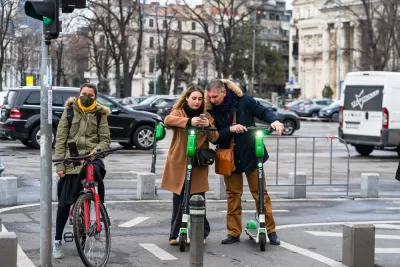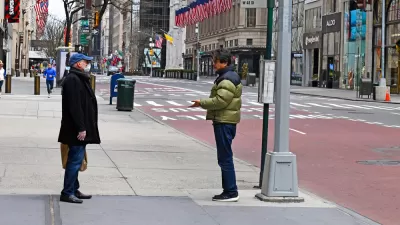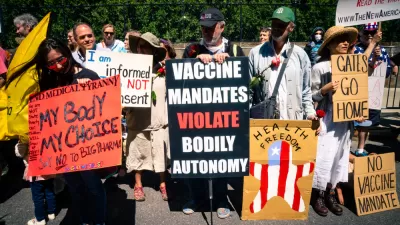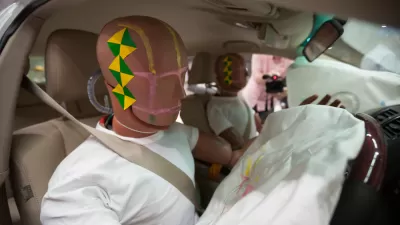Social distancing is the word controlling most U.S. urban dwellers' thoughts and actions right now, but cities around the world have additional lessons in pandemic response to share.

Schuyler Null and Hillary Smith identify trends within the global response to the COVID-19 pandemic, providing four themes, with a lot of specific examples included in the source article.
One of the trends listed in the article, restricting access, will come as absolutely zero surprise, but the others probably seem counterintuitive to the stories being told about the urban experience of the pandemic in the United States, namely cities fortifying public transit, providing alternatives to public transit, and providing "radical data transparency."
As an example of offering alternatives to transit, for example, Bogotá expanded its bike network once already, with plans for more.
FULL STORY: COVID-19 Could Affect Cities for Years. Here Are 4 Ways They’re Coping Now.

Planetizen Federal Action Tracker
A weekly monitor of how Trump’s orders and actions are impacting planners and planning in America.

Maui's Vacation Rental Debate Turns Ugly
Verbal attacks, misinformation campaigns and fistfights plague a high-stakes debate to convert thousands of vacation rentals into long-term housing.

Restaurant Patios Were a Pandemic Win — Why Were They so Hard to Keep?
Social distancing requirements and changes in travel patterns prompted cities to pilot new uses for street and sidewalk space. Then it got complicated.

In California Battle of Housing vs. Environment, Housing Just Won
A new state law significantly limits the power of CEQA, an environmental review law that served as a powerful tool for blocking new development.

Boulder Eliminates Parking Minimums Citywide
Officials estimate the cost of building a single underground parking space at up to $100,000.

Orange County, Florida Adopts Largest US “Sprawl Repair” Code
The ‘Orange Code’ seeks to rectify decades of sprawl-inducing, car-oriented development.
Urban Design for Planners 1: Software Tools
This six-course series explores essential urban design concepts using open source software and equips planners with the tools they need to participate fully in the urban design process.
Planning for Universal Design
Learn the tools for implementing Universal Design in planning regulations.
Heyer Gruel & Associates PA
JM Goldson LLC
Custer County Colorado
City of Camden Redevelopment Agency
City of Astoria
Transportation Research & Education Center (TREC) at Portland State University
Jefferson Parish Government
Camden Redevelopment Agency
City of Claremont





























